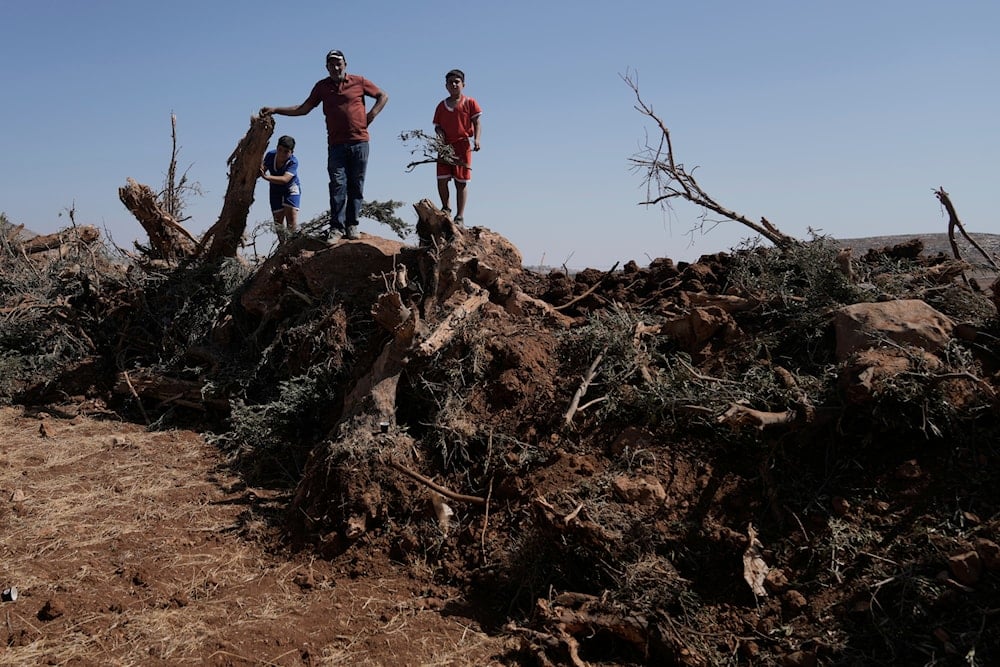Settler violence intensifies during olive harvest in W. Bank: Reuters
Palestinian farmers face rising settler violence during the olive harvest in the occupied West Bank, with attacks intensifying near Turmus Ayya and al-Mughayyir.
-

Palestinian farmer Kazem Al-Hajj Muhammad and his children check the olive trees that were uprooted from their land following an Israeli military raid in the West Bank village of Al-Mughayyir, on August 24, 2025 (AP Photo/Majdi Mohammed)
Since the harvest began in early October, the Palestinian Authority's Colonization and Wall Resistance Commission (CWRC) has recorded at least 158 settler attacks across the Israeli-occupied West Bank, Reuters reported on Friday.
Ajith Sunghay, head of the UN Human Rights Office in the occupied Palestinian territory, noted a 13% increase in settler attacks during the first two weeks of the 2025 harvest season compared to the same period in 2024.
Farmers and activists emphasize that Palestinian olive trees are often targeted because they are a symbol of connection to the land. "The olive tree is a symbol of Palestinian steadfastness," said Adham al-Rabia, a Palestinian activist.
#شاهد| جانب من المواجهات بين قاطفي الزيتون والمستوطنين في منطقة ببت اكسا pic.twitter.com/c6tjwIa6MR
— المركز الفلسطيني للإعلام (@PalinfoAr) October 24, 2025
Sunghay added that settlers this season have burned olive groves, used chainsaws to fell trees, and destroyed homes and farming infrastructure, as reported by Reuters.
"Settler violence has skyrocketed in scale and frequency, with the acquiescence, support, and in many cases participation, of Israeli security forces, and always with impunity," he said during a UN briefing on Tuesday.
#شاهد| قطعان المستوطنون يسرقون الزيتون من أراضي المزارعين في بلدة قبلان جنوب نابلس. pic.twitter.com/h2pclG12Ao
— المركز الفلسطيني للإعلام (@PalinfoAr) October 24, 2025
Home to around 2.7 million Palestinians, the West Bank remains at the center of future-"state" aspirations. However, settlement expansion has increasingly fragmented the land, making Palestinian agriculture more vulnerable.
Olives are a critical component of Palestinian agriculture, accounting for around 8% of GDP and supporting more than 60,000 jobs, according to the Palestinian Agriculture Ministry.
Additionally, the Israeli military said it had cut down over 3,000 trees in the area "to improve defenses", but residents report much higher figures.

 2 Min Read
2 Min Read










